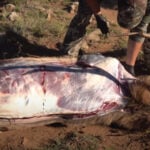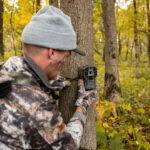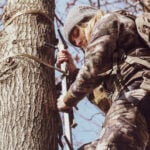Bowhunters are living in an age of endless backpack options. Each pack is highly advanced in comparison to those made “back in the day”.
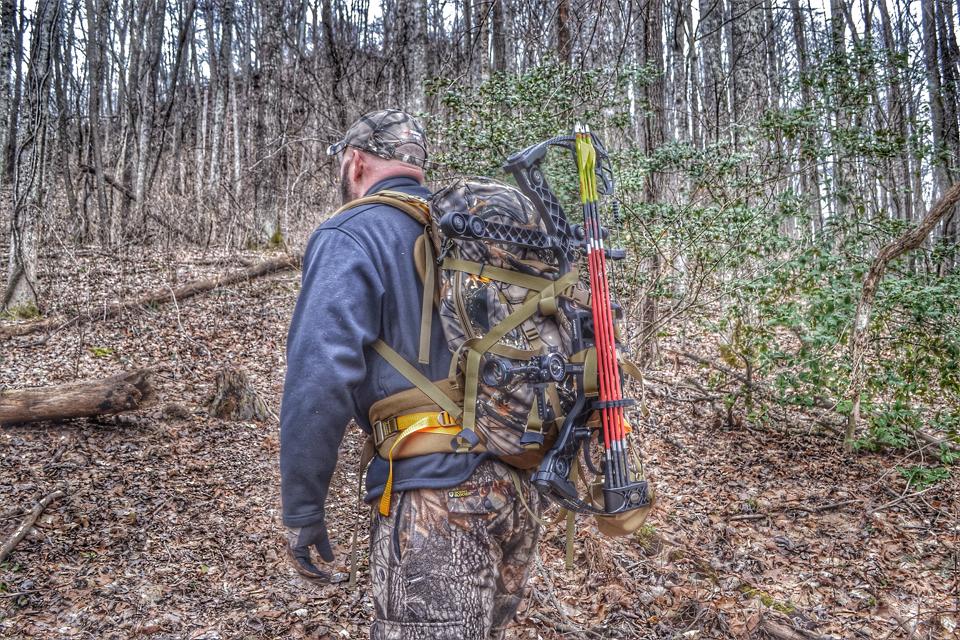
Today, designers use top of the line materials as they push the level of comfort and design to produce specialized, performance-driven backpacks for bowhunting.
Whether it is for the mountains, farm country, or desert environment there is a backpack for every application.
Unfortunately, due to all the varied terrain and different types of hunting opportunities, there isn’t just one perfect pack; most likely it will take a few packs to cover different applications.
The plan for a hunt is what ultimately determines the type of backpack needed. Hunters all benefit from a functional and versatile pack design.
Key items to look for in a backpack:
- Proper fit
- Adequate capacity
- Price
- Versatility
- Material noise
- Number and types of pockets
- Comfortable suspension system
- Meat carrying cell
- Durability
- Price
- Warranty
- Weight
- Adjustability for torso lengths, or different sizes available
- Hydration compatible
- Pack support material (composite, aluminum, carbon, etc.)
- Pack compression
- Airflow around back
- Modular design (different packs attach)
- Attachment points
- Quality materials
Backpack Sizes
Backpack sizes are listed either in cubic inches or liters. Select a pack with an appropriate size and consider the type of hunt it will be used on.
Keep in mind that the season the hunt takes place will determine if extra gear is needed.
For example, pack size will need to be altered if hunting in December as opposed to August as you will most likely have additional clothing and other supplies needed during cold weather bow hunts.
The list below contains very general guidelines and will depend on the gear being packed and also the type of hunt it will be used on.
- 5 nights or more: 5,000 plus cubic inches
- 3-5 nights: 3,000-5,000 cubic inches
- 1-2 nights: 2,000-3,000 cubic inches
- Day hunts: 1,500-2,000 cubic inches
Daypacks:
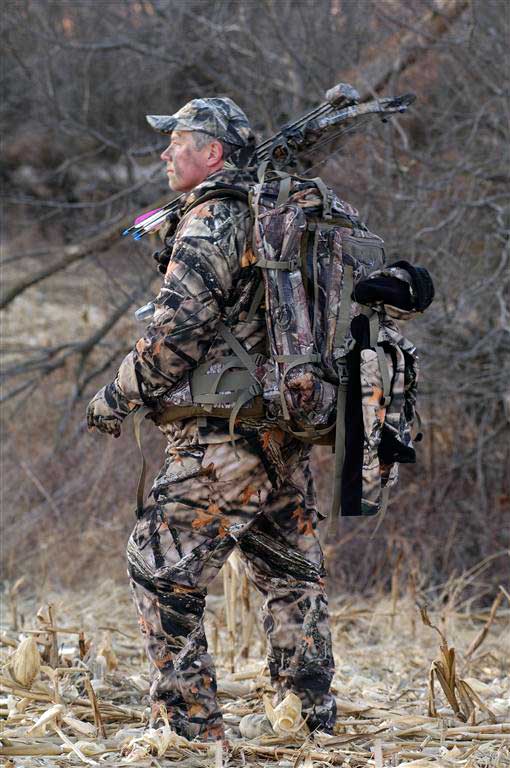
When it comes to daypacks, organization and pockets to keep gear handy on a moment’s notice are very important.
These daypacks are designed for the quick outings when a few extra gear items may need to be taken to prepare for the elements or for carrying daily nutrition and hydration requirements; just to name a few.
These packs are meant for lighter loads and are a perfect choice for hauling gear into a favorite stand or on a spot and stalk type hunt. High quality daypacks have hip belts to prevent the load from bouncing on the users back.
Pros:
- Light
- Easily accessible
Cons:
- Suspension systems
- Not designed for heavy loads
Weekend Packs:
These packs can handle some weight yet are still light enough to take on a day hunting trip if needed.
This pack system is a step above a simple daypack, with advanced shoulder straps and waist belt to accommodate heavier loads. Packs of this design can be used for hauling meat on short trips if needed.
Pros:
- Haul weight if needed
- Dual purpose- can function as a daypack or be used for an overnight trip
Cons:
- Multiple trips will be needed to pack out an animal
- Due to pack volume, one may need to choose gear wisely if used for multiple nights
Backcountry Packs:
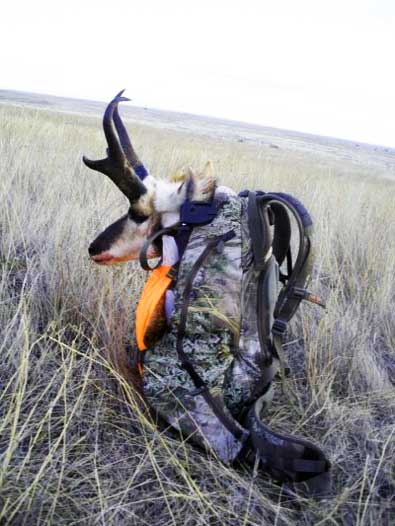
This is truly where the rubber meets the road, or, in this case, where the boot leather meets the mountain.
Backcountry packs need to have it all when it comes to comfort; adjustability, compression straps, heavy load capability, and organization.
Packs intended for heavy backcountry hunting tip the scales on the heavy side in comparison to lightweight hiking packs due to being so versatile.
These packs enable one to hunt for a week with ease and usually are designed perfectly to carry 100 pounds of meat and camp adequately once the tag on a trophy has been punched.
Packs in this line carry weight very well due to their suspension system and extra padding in the straps and comfortable waist belts.
Pros:
- Ability to haul heavy gear
- Suspension system aids in comfort
- More pockets to keep gear organized
Cons:
- Heavier than a standard daypack
- Ability to over pack due to large pack size
- Not practical for day trips
Other Lightweight Options:
Hunting packs tend to be a little on the heavy side, and, for some, it’s hard to swallow the weight of an empty pack that tips the scales at over 5 pounds.
Lightweight alternatives do exist and for some hunting applications they are perfect.
These are normally backpacks that people wear on hiking trips across the country in national parks, and other mountainsides and trails alike.
These are normally lightweight bags with small shoulder straps and minimal waist belts.
Caution should be used when using a lightweight alternative pack…these types of packs are typically made for lighter loads and simply just backpacking…not really hunting.
For a day hunt with no intentions of carrying deboned meat it would be great. They would be very comfortable carrying gear and camp at 35-45 pounds, but when adding boned out meat to the equation, the shoulder straps will most likely dig into the shoulders and the pack will be awkward and uncomfortable to carry.
For antelope, whitetail, or spot and stalk mule deer hunts, a lightweight backpack like these would suit someone just fine as weight is usually minimal.
Another great option is utilizing these lightweight versions for spring and summer scouting trips.
Closing
Proper research on different pack designs will enable one to hunt harder and be comfortable while pursuing their passion.
Choose a pack with capacity and features for the most demanding situations expected.
If the backpack doesn’t fit the body type it is being used on, it will be uncomfortable. Therefore, pay extra attention while researching packs for the next hunt.

 By
By 